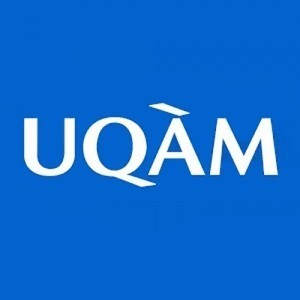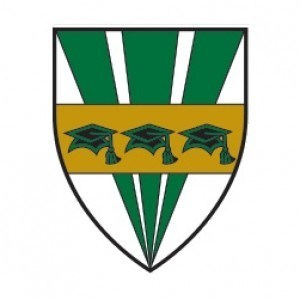Photos of university / #uqam
Musique (Pratique artistique) at the University of Quebec in Montreal offers students an in-depth exploration of musical creation, performance, and artistic expression. This program is designed for individuals passionate about developing their skills in various musical disciplines, including performance, composition, and improvisation, within a collaborative and innovative environment. Students engage in intensive practical training, complemented by theoretical coursework that covers music theory, history, and contemporary practices. The curriculum emphasizes the development of a personal artistic voice while providing opportunities to experiment with different genres, styles, and technological tools. Through individual lessons, ensemble work, workshops, and performances, students cultivate technical proficiency, interpretative abilities, and critical listening skills. The program encourages creativity, experimentation, and research, fostering an artistic approach grounded in both tradition and innovation. Participants are involved in a vibrant community of musicians, composers, and researchers, which enriches their educational experience and prepares them for careers in music performance, composition, education, or other artistic fields. With access to state-of-the-art facilities, recording studios, and performance venues, students have the resources necessary to realize their artistic projects and showcase their work. Graduates from this program are equipped with advanced skills, a comprehensive understanding of contemporary musical practices, and a strong artistic identity, enabling them to contribute actively to the cultural landscape. The program also promotes interdisciplinary collaboration, encouraging students to explore connections between music and other artistic or technological domains. Overall, Musique (Pratique artistique) offers a rigorous, dynamic, and creative environment where aspiring musicians and artists can develop their craft, engage with diverse musical ideas, and prepare for a successful artistic career.
The Bachelor of Arts in Music (Pratique Artistique) at the Université du Québec à Montréal offers students a comprehensive training in the art of musical practice, emphasizing both technical proficiency and artistic development. This program is designed to develop well-rounded musicians capable of contributing creatively to the diverse musical landscape. Throughout their studies, students engage in a variety of courses that cover fundamental aspects of music, including music theory, harmony, ear training, and history, providing a strong theoretical foundation. The program also emphasizes practical skills, offering extensive instruction in performance, improvisation, and ensemble work, allowing students to refine their playing and stage presence in real-world settings.
The curriculum is structured to foster artistic expression and critical thinking, encouraging students to explore different musical genres and styles. Students participate in numerous rehearsals, workshops, and collaborative projects that promote teamwork and adaptability. Specialized courses in composition and arrangement enable students to create original works and adapt existing pieces, expanding their creative capacities. Additionally, the program integrates technology in music production, preparing students to utilize modern tools for recording, editing, and distributing music.
Throughout their studies, students benefit from the expertise of experienced faculty members who are active professionals in their fields. Performance opportunities are integral to the program, with students performing regularly in concerts, recitals, and community events, which enhances their confidence and stage presence. Moreover, the program encourages internships and partnerships with local music organizations, providing valuable industry experience and networking opportunities.
Graduates of this program are equipped with the skills necessary for diverse careers in the music industry, including performing, teaching, composing, and production. They also possess a strong artistic voice and critical understanding of musical culture, enabling them to contribute innovatively within the arts community. Whether aiming for a professional musical career or seeking advanced studies, students emerge from the program with a rich repertoire of skills, knowledge, and practical experience to succeed in the dynamic world of music.
The Music (Artistic Practice) program at the University of Quebec in Montreal (UQAM) is designed to provide students with comprehensive training in musical performance, composition, and artistic creation. The program emphasizes the development of technical skills, artistic expression, and critical thinking, preparing students for diverse careers in the music industry or further academic pursuits. Admission requirements typically include a completed application form, academic transcripts demonstrating prior musical or related studies, and a personal statement outlining the applicant’s motivation and artistic goals. Prospective students may also be required to submit a portfolio or audition to assess their musical abilities and potential. The curriculum combines theoretical courses in music history, theory, and analysis with practical instruction in instrumental or vocal performance, composition, and music production. Students are encouraged to participate in ensemble work, solo performances, and creative projects to enhance their artistic skills. The program often includes workshops, masterclasses, and seminars led by experienced music professionals, providing students with exposure to various musical genres and contemporary practices. To graduate, students must complete a set number of credits, which typically include core courses, elective courses, and a final project or recital demonstrating their artistic proficiency. Additionally, students are evaluated through exams, performances, and project presentations. The program fosters an environment of active artistic exploration and community engagement, with facilities such as practice studios, recording labs, and performance venues available for student use. Interdisciplinary collaboration is encouraged, allowing students to explore intersections between music and other arts or technologies. The program also offers opportunities for internships and networking with industry professionals, which are instrumental in career development. Overall, the Music (Artistic Practice) program at UQAM aims to cultivate highly skilled, creative, and adaptable musicians ready to contribute innovatively to the artistic field.
The financing of the Musique (Pratique artistique) program at the University of Quebec in Montreal (UQAM) is primarily supported through a combination of government funding, student tuition fees, and various financial aid options. As a public university in Quebec, UQAM benefits from provincial funding allocated by the Ministère de l’Enseignement supérieur, which covers a significant portion of operational costs and program-specific funding to ensure accessibility and quality education. Student tuition fees constitute another essential component of the program's financing; these fees are established according to provincial regulations and vary depending on the student's residency status, with Quebec residents paying lower tuition compared to international students. Additionally, the university offers a range of scholarships, bursaries, and financial assistance programs aimed at supporting students enrolled in the Musique (Pratique artistique) program. These financial aids are often based on academic performance, financial need, or a combination of both, and are provided by both government bodies and private donors.
For students, there are also specific financial support programs such as student loans and grants available through government agencies like the Quebec Student Assistance Program (Aide financière aux études). These programs are designed to mitigate the financial burden of higher education and facilitate access for students from diverse socio-economic backgrounds. The university also encourages students to seek external funding sources, including arts-specific grants and sponsorships, which may support their artistic development and enhance their financial sustainability during their studies. Moreover, several part-time employment opportunities are available on campus or within the university’s network, providing students with additional income sources that help finance their education and living expenses.
The program's long-term financial sustainability relies on a balanced mix of these funding avenues, ensuring the continuity of high-quality artistic education while maintaining affordability for students. The university also periodically reviews its fee structures and financial aid policies to adapt to the evolving economic landscape and support its student body effectively. Overall, the financing structure of the Musique (Pratique artistique) program emphasizes accessibility, support for artistic talent development, and financial stability for enrolled students, aligning with UQAM's mission to promote inclusive and diverse educational opportunities.
The Musique (Pratique artistique) program at the University of Quebec in Montreal is designed to provide students with a comprehensive education in the artistic practice of music. This program emphasizes developing both technical skills and creative capacities, enabling students to pursue careers in performance, composition, teaching, or music production. The curriculum typically covers various musical genres, instrumental techniques, music theory, history, and contemporary practices, offering a well-rounded musical education. Students may have opportunities to engage in solo and ensemble performances, audio recording, and music technology, fostering a diverse set of skills suited for the evolving music industry. The program aims to promote artistic expression, critical thinking, and innovative approaches to music making. Faculty members are often experienced musicians and educators committed to mentoring students through individual lessons, workshops, and collaborative projects. The program may also include opportunities for internships, participation in music ensembles, and performances at university events, helping students to build professional networks and gain practical experience. Graduates of the program are equipped to work as professional musicians, composers, music educators, or to continue their studies at advanced levels such as a master's or doctoral degree. Overall, the Musique (Pratique artistique) program at UQAM fosters a creative environment that supports artistic growth, technical mastery, and cultural understanding, preparing students to contribute meaningfully to the musical arts community.

